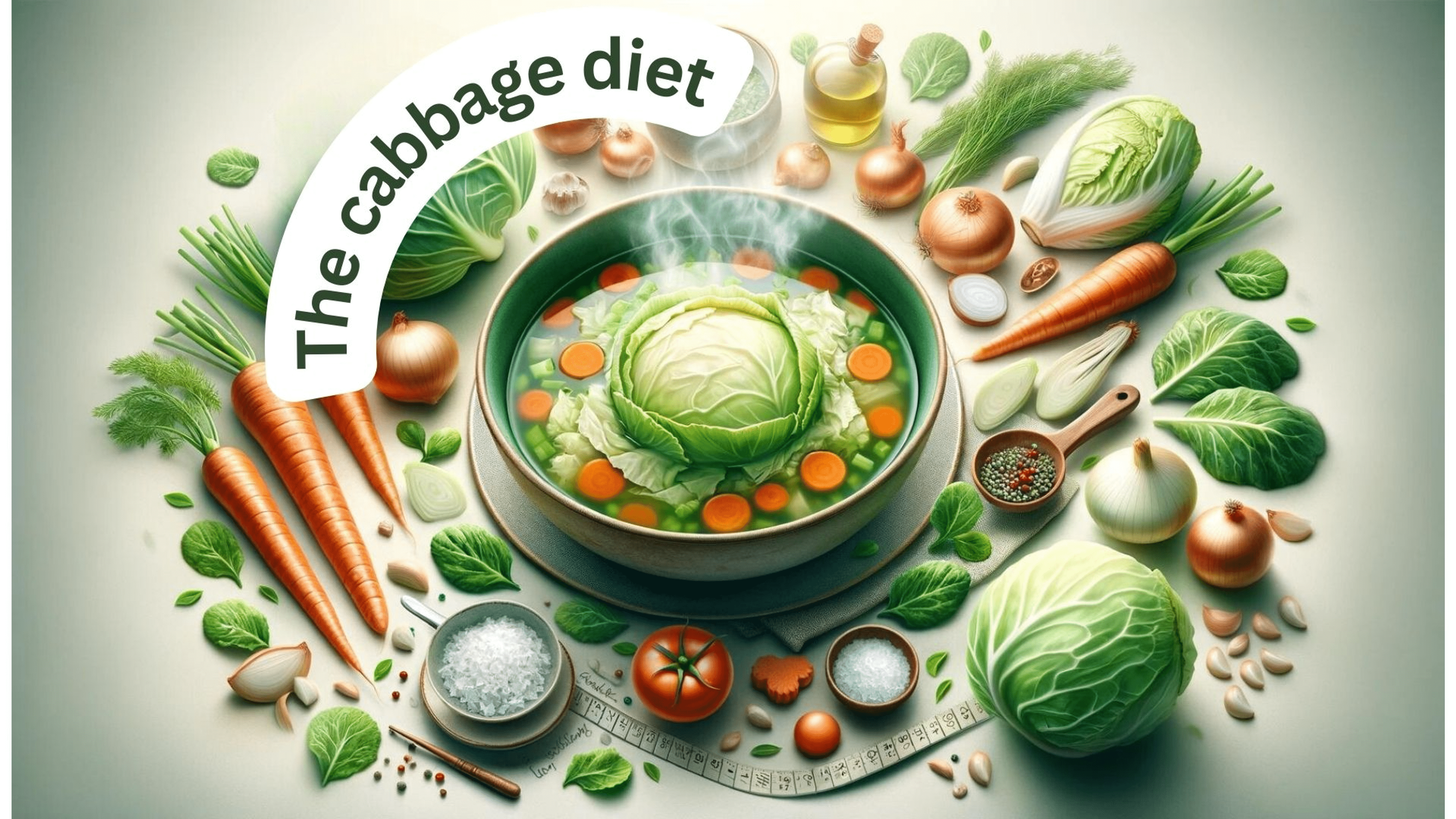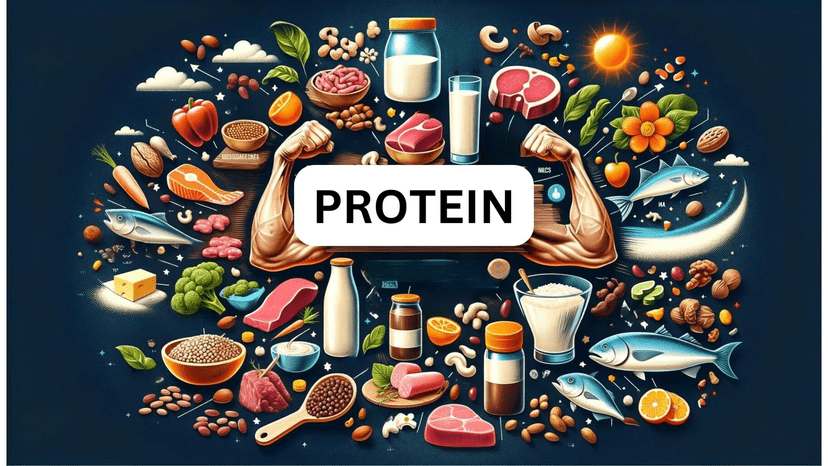Is the Cabbage Diet a Good Way to Lose Weight Fast?

Overview of the Cabbage Soup Diet
Let's demystify the Cabbage Soup Diet. Fundamentally, this diet is a quick-fix, low-fat, high-fiber diet that is prevalent among those looking to lose weight rapidly. It hails from the mid 20th century; ever since the diet got popularised for its capability to supposedly assist in losing up to 10 pounds in just a week. The Cabbage Soup Diet usually spans a duration of one week and is often considered as a means to kick start a longer-term weight loss plan.
What Is the Cabbage Soup Diet?
The Cabbage Soup Diet is essentially a short-term diet plan. Ironically despite its name, it not only includes the consumption of cabbage soup every day of the week but also allows you to eat certain groups of food on specific days. For example, fruits, vegetables, milk, and beef supplement the diet at various stages of the week.
Diet Components and Duration
The primary component of the diet, as the name suggests, is a cabbage-based soup which can be consumed in unlimited quantities throughout the duration of the diet. Other additional foods such as vegetables, fruit, beef, skimmed milk, and brown rice are also included on specific days of the meal plan. It's prescribed that drinkers should consume this soup, at least once a day, for seven consecutive days. Various recipes available for use share a common feature – simplicity and low cost of the ingredients - mainly including cabbage, cans of tomatoes, a pack of onion soup mix, and bouillon cubes.
Supplementary foods included on separate days of the week vary from all fruits (except bananas) to all vegetables, including baked potatoes on the second day. Most animal proteins are added on the fifth and sixth days of the diet. However, it's important to acknowledge that the diet lacks adequate quantities of all essential nutrients making it feasible only for a short duration.
Expected Weight Loss Results
Weight loss resulting from the Cabbage Soup Diet tends to be temporary. It is primarily water weight that one loses due to the reduced calorie intake rather than actual body fat. This weight tends to get regained once one switches back to a regular diet. The diet helps lose weight drastically, not by burning fat, but by leading to a net calorie shortfall in your body.
The Cabbage Soup Diet promises a rapid weight loss of up to 10 pounds within a week. The reduced calorie intake throughout the week creates a calorie deficit in your body which leads to weight loss which might be encouraging for those seeking quick results. However, before subjecting the body to such a drastic regime, it's highly recommended to consult with a health professional.
Benefits and Drawbacks of the Cabbage Soup Diet
When beginning to consider the cabbage soup diet, it's important that we delve into a comprehensive examination of its potential benefits and drawbacks. Although many are attracted to its promises of quick weight loss, understanding the full picture necessitates an exploration of the diet's nutritional considerations and long-term effects.
Short-term Weight Loss Potential
Initially, the cabbage soup diet can seem appealing due to its potential for short-term weight loss. The diet primarily consists of a low-fat, high-fiber food choice which can naturally lead to caloric deficit and weight loss. It's crucial that we highlight that this weight loss is a fundamental result of consuming fewer calories than our body uses.
However, we should be cautious to underline that not all weight loss is equal. In the case of the cabbage soup diet, the weight lost initially might not be exclusively fat. It is scientifically established that rapid weight loss can, unfortunately, come at the expense of muscle tissue and water weight, with the latter potentially accounting for a significant portion of the recorded weight loss.
Nutritional Considerations and Risks
Before embarking on any diet, understanding its nutritional implications is vital. The cabbage soup diet is decidedly low in essential nutrients like protein, healthy fats and complex carbohydrates. While cabbage itself is a low-calorie vegetable with a great array of vitamins and minerals, the diet itself restricts your daily intake to primarily cabbage soup, leaving much to be desired nutritionally.
As such, those who follow this diet may experience symptoms of nutrient deficiency, including weakness, dizziness, and increased susceptibility to infections due to a weakened immune system. The lack of diversity in food choice can also lead to unfavorable side effects such as bloating, flatulence, and overall discomfort, which are symptoms synonymous with a high intake of cabbage.
Sustainability and Long-term Health Effects
Considering the sustainability of any diet is a key aspect of maintaining long-term health and managing weight effectively. It's worth emphasizing that while the cabbage soup diet offers a quick solution to weight loss, it's not designed as a long-term lifestyle choice. The inherent low energy intake and minimal variety could lead to disinterest and diet fatigue, making it unlikely to be sustainable in the long term.
Further, weight lost rapidly is often regained once one resumes a regular eating pattern, leading to a potential "yo-yo effect" in weight cycling. This type of weight fluctuation has been linked to adverse health outcomes, including an increased risk of chronic diseases like heart disease and diabetes.
In conclusion, while the cabbage soup diet might provide quick short-term weight loss, it does not promote a balanced, nutrient-dense diet or a sustainable way to maintain weight loss. As such, it's always best advised to adopt a balanced diet coupled with regular physical activity for sustainable and healthy weight management.
Healthy Alternatives for Sustainable Weight Loss
The need to shed a few pounds swiftly might tempt you to try something like the cabbage soup diet. But what if I told you there are healthier and more sustainable methods to not only lose weight but also maintain it over the long term? These alternatives focus on balanced nutrition, portion control, and incorporating physical activity into your lifestyle.
Adopting a Balanced and Nutritious Diet
One of your goals should be to adopt a diet that is balanced and focuses on essential nutrients. Instead of switching to a diet that heavily focuses on only one type of food, like cabbage soup, strive to consume:
-
A variety of fruits and vegetables: They are low in calories and packed with essential vitamins, minerals, and antioxidants.
-
Enough protein: Sources like lean meat, poultry, fish, and plant-based options such as beans and lentils are important for maintaining and building muscle tissue.
-
Whole grains: Foods such as brown rice, oats, and whole grain bread provide fiber that aids digestion and keeps you feeling full, thereby controlling your urge to snack.
-
Healthy fats: Foods like avocados, nuts, and seeds, as well as olive oil, contribute to heart health and also assist in absorbing vitamins.
Sustaining a balanced and nutritious diet eliminates the need to resort to roller-coaster diet plans and instead paves the way for long-term benefits, not merely quick fixes.
The Importance of Portion Control
Alongside a balanced diet, portion control plays a vital role in achieving and maintaining a healthy weight. This doesn't mean you need to starve yourself or measure every ounce of food. Here's how to practise portion control:
- Start by reducing the size of your plates and bowls. This has been shown to naturally lead to consuming fewer calories.
- Fill at least half of your plate with vegetables. This can reduce the room for higher-calorie parts of the meal.
- Avoid eating right from the package. Instead, serve yourself a reasonable amount and put the package away.
Through portion control, you can enjoy a variety of foods without overindulging and prevent weight gain.
Incorporating Regular Physical Activity
While diet plays a significant role in weight management, regular physical activity is an equally important part of the equation. Regular exercise helps to maintain muscle mass and supports your metabolism, resulting in better control over your weight.
You don't need to devote hours to workout sessions or join a gym unless that's your preference. Here are some simple and enjoyable ways to get started:
- Brisk walks or biking around your neighborhood.
- Gardening or other yard work.
- Physical activity apps or home workout videos.
Bearing in mind these healthier and more sustainable methods, it's noteworthy that any plan you adopt to lose weight should be one that you can stick with for the long haul. A healthy and balanced approach to diet coupled with regular exercise and portion control is always the best strategy for successful and lasting weight loss. Remember, the goal is not just about losing weight quickly but to promote total wellness and a healthier lifestyle.
In Summary
To encapsulate, the Cabbage Soup Diet is a quick-fix method resulting in short-term weight loss. Historically, it gained popularity due to its efficiency in helping individuals lose up to 10 pounds within a week. Yet, it's crucial to comprehend that the weight you initially shed comprises mostly water weight and not body fat, a consequence of the created caloric deficit in your body. Also, the diet is low in essential nutrients and its long-term sustainability is questionable at best.
Considering a quick-fix diet method like the Cabbage Soup Diet can be tempting, but the significant health and sustainability drawbacks mean it's not the best course of action for most people desiring long-term weight loss or better overall health. Instead, adopting a balanced and nutritious diet, practicing portion control, and incorporating regular physical activity into your lifestyle are the healthier and more sustainable weight management strategies.
Here is a healthy plan of action to implement in place of the Cabbage Soup Diet:
-
Adopt a Balanced and Nutritious Diet: Base your eating regime around a variety of fruit and vegetables, lean proteins, whole grains, and healthy fats to provide a spectrum of nutrients needed for good health.
-
Practice Portion Control: Implementing portion control strategies such as using smaller plates and bowls, and restricting yourself to single servings can help regulate the number of calories consumed.
-
Exercise Regularly: Regular physical activity should be a part of your daily routine. Choose an exercise that you enjoy to sustain it in the long run.
In essence, strive for total wellness and a healthier lifestyle rather than rapid and unsustainable weight loss. Remember, it's not a sprint but a marathon! A slow and steady progress in changing dietary habits combined with a consistent exercise routine will yield sustainable results over time. It's far more beneficial for your health and well-being in the long run.




